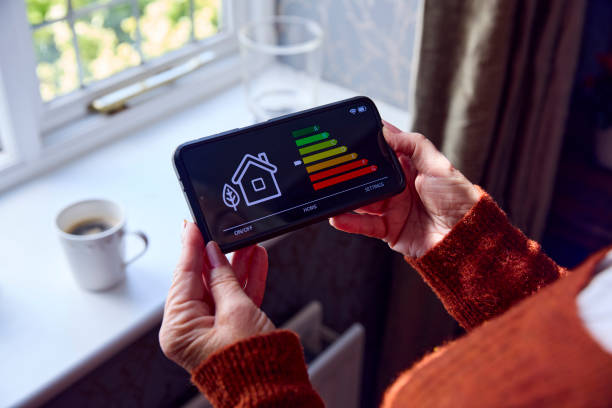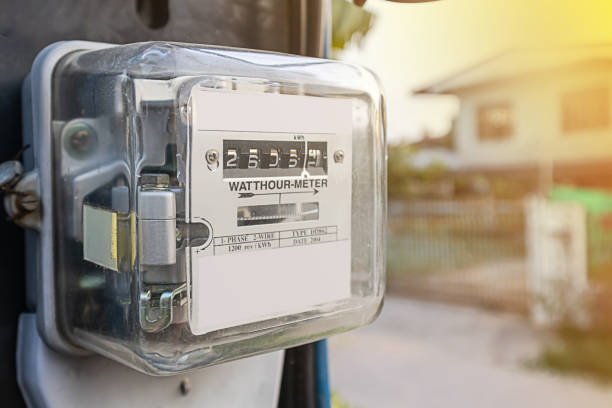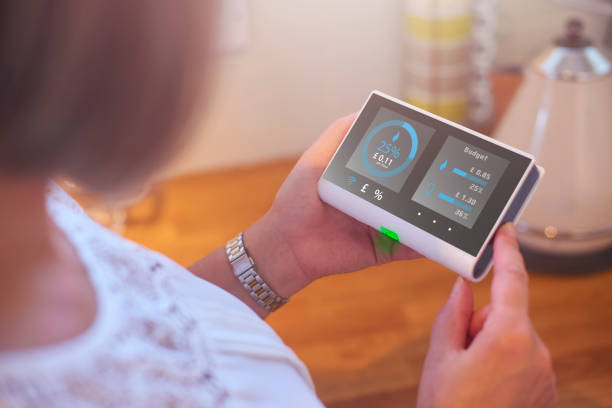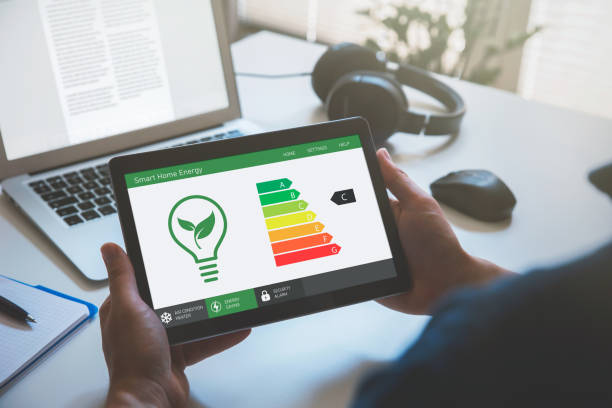Is your electricity bill keeping you up at night, worrying that you’re not getting the best price? You might want to consider an Economy 7 tariff, an energy plan designed to save you money while you sleep. Electricity rates on Economy 7 are usually cheaper between midnight and 7 am in the early morning, depending on your energy supplier.
Essentially, consumers are encouraged to use electricity when the demand is lower during the nocturnal hours, thus reducing grid strain and saving them money.
Understanding Economy 7

Economy 7 is a specialized tariff that offers variable pricing based on consumption, providing lower rates during off-peak hours, usually at night. This tariff is facilitated through dedicated meters and can lead to cost savings if you primarily use electrical appliances and heaters during these off-peak periods. However, its effectiveness depends on factors such as your tariff plan, region, and the proportion of electricity you consume during off-peak hours.
Determining Your Objective
Before switching to Economy 7, evaluate your objectives and usage patterns. Consider if your heating solutions, such as storage heaters or heat pumps, align with Economy 7’s benefits. Additionally, assess the efficiency of your kitchen appliances, as modern, energy-saving models may not fully leverage Economy 7’s advantages.
Storage Heaters and Economy 7
Economy 7 is best for people who currently use storage heaters. Storage heaters store heat during off-peak hours and release it throughout the day, aligning well with Economy 7’s tariff structure. Using a two-tariff electricity meter and setting timers can help you optimize your energy consumption and save money.
Heat Pumps and Economy 7
For those with heat pumps, evaluating the compatibility with Economy 7 is essential. While heat pumps are efficient heating solutions, their synergy with Economy 7 depends on factors such as eligibility for grants and incentives, as well as your specific heating needs.
Making an Informed Decision
Before transitioning to Economy 7, thoroughly research and compare tariffs in your region. Assess your eligibility, analyze pricing differences, and consider consulting renewable energy experts to determine if Economy 7 is the right fit for your household.
Benefits of Economy 7

Economy 7 offers several benefits that make it an attractive option for many households. These benefits include:
-
- Cost Savings: By taking advantage of lower off-peak rates, households can significantly reduce their electricity bills, especially if they use a substantial portion of their electricity during these hours. This cost-saving aspect can have a positive impact on overall budget management and financial stability for families.
-
- Flexibility: Economy 7 allows for flexibility in managing energy consumption, as consumers can schedule high-energy tasks like laundry and dishwashing during off-peak hours to capitalize on lower rates. This flexibility can be particularly beneficial for households with varying daily schedules or those seeking to optimize their energy usage for different appliances.
-
- Environmental Impact: By encouraging energy usage during off-peak times when overall demand is lower, Economy 7 can contribute to a more balanced and sustainable energy grid. This reduced strain on the grid during peak hours can help mitigate the risk of power outages and improve overall energy efficiency in the community.
-
- Heating Efficiency: Economy 7’s tariff structure can enhance heating efficiency and reduce overall heating costs. This can lead to a more comfortable living environment during colder months while achieving significant energy savings.
Evaluating Your Energy Usage

Before making the switch to Economy 7, it’s essential to conduct a thorough evaluation of your energy usage patterns. Consider the following factors:
-
- Peak vs. Off-Peak Consumption: Analyze your electricity usage throughout the day to determine how much energy you consume during peak and off-peak hours. This analysis can provide valuable insights into potential cost savings with Economy 7.
-
- Appliance Usage: Identify which appliances contribute most to your electricity consumption and assess if you can shift their usage to off-peak hours. Consider the energy efficiency ratings of your appliances and how they align with off-peak usage strategies.
-
- Heating Needs: Evaluate your heating requirements, including the type of heating system you have and the hours during which you typically require heating. Determine if Economy 7’s off-peak hours coincide with your heating needs to maximize savings.
-
- Lifestyle Considerations: Take into account your daily routines and activities to determine if Economy 7’s off-peak hours align with your usage patterns. Consider factors such as working hours, family schedules, and peak energy usage times to optimize your energy consumption.
Optimizing Appliance Usage
To maximize the benefits of Economy 7, consider implementing the following strategies to optimize your appliance usage:
-
- Programmable Timers: Invest in programmable timers for appliances such as washing machines, dishwashers, and storage heaters to schedule their operation during off-peak hours. This automated scheduling can streamline energy usage and reduce costs.
-
- Energy-Efficient Appliances: Replace older, energy-intensive appliances with modern, energy-efficient models that can further reduce your overall electricity consumption. Look for appliances with high Energy Star ratings and energy-saving features.
-
- Smart Home Technology: Explore smart home technology and energy monitoring devices to track and manage your energy usage more effectively. Smart thermostats, lighting controls, and energy dashboards can provide real-time insights and optimization opportunities.
-
- Behavioral Changes: Encourage energy-saving habits among household members, such as turning off lights and unplugging devices when not in use, to complement its benefits. Educate family members about the importance of energy conservation and their roles in reducing energy waste.
Financial Considerations and Cost Analysis
Before switching to Economy 7, conduct a comprehensive financial analysis to assess the potential savings and costs. Consider the following aspects:
-
- Tariff Comparison: Compare the rates and terms with other available tariffs in your region to determine if it offers the best value for your energy needs. Consider any introductory offers, discounts, or incentives available with different tariffs.
-
- Installation Costs: Factor in any upfront costs associated with installing meters or upgrading existing systems to ensure compatibility. Consider consulting with energy providers or contractors to get accurate cost estimates.
-
- Long-Term Savings: Estimate your potential long-term savings by switching to Economy 7 based on your projected energy usage patterns and tariff rates. Consider factors such as seasonal variations in energy consumption and rate changes over time.
-
- Return on Investment: Calculate the return on investment (ROI) of transitioning to Economy 7 by comparing the expected savings with the initial investment over a specified period. Determine the payback period for any upfront costs and assess the overall financial benefits of the switch.
Seeking Professional Advice
If you’re unsure whether it is the right choice for your household, consider seeking advice from energy experts or consultants. They can provide personalized recommendations based on your circumstances, helping you make an informed decision. Some areas where professional advice can be beneficial include:
-
- Energy Audit: Schedule an energy audit with a certified energy auditor to assess your home’s energy efficiency and identify areas for improvement. An energy audit can help you prioritize energy-saving upgrades and strategies.
-
- Tariff Analysis: Consult with energy providers or tariff experts to analyze the details and determine if it aligns with your energy usage patterns and financial goals. They can provide insights into tariff structures, pricing fluctuations, and potential savings.
-
- System Compatibility: If you have specific heating systems or appliances, such as heat pumps or electric vehicles, consult experts to ensure compatibility and optimize energy usage. They can recommend adjustments or upgrades to maximize efficiency.
-
- Regulatory Guidance: Stay informed about regulatory changes, government incentives, and energy-saving programs that may impact your decision to switch. Professionals can help navigate regulatory requirements and leverage available incentives.
Case Studies and Examples
To illustrate the practical benefits of Economy 7 and energy-saving strategies, consider including case studies or examples of successful implementations. Highlight real-world scenarios where households have achieved significant cost savings, improved energy efficiency, and environmental benefits by adopting Economy 7 and implementing energy-saving measures.
Conclusion
Economy 7 can be a cost-effective solution for managing energy consumption, especially if you align your usage patterns with off-peak hours. Whether you have storage heaters, heat pumps, or other appliances, conducting a comprehensive assessment of your needs and options will empower you to make an informed decision.
Frequently Asked Questions (FAQs)
1. What is Economy 7, and how does it work?
Economy 7 is a specialized electricity tariff that offers lower rates during off-peak hours, typically at night. It encourages consumers to shift their energy usage to off-peak times when overall demand is lower, resulting in potential cost savings.
2. Who can benefit from Economy 7?
Consumers who use a significant portion of their electricity during off-peak hours, typically around 50% or more, can benefit the most.
3. What appliances are suitable for use with Economy 7?
You can use appliances such as dishwashers, washing machines, storage heaters, and electric vehicle chargers. Program these appliances to operate during off-peak hours to maximize cost savings.
4. How can I determine if Economy 7 is right for me?
Conduct a thorough assessment of your energy usage patterns, heating needs, and appliance usage to determine if it aligns with your lifestyle and financial goals. Consider consulting with energy experts or conducting an energy audit for personalized recommendations.
5. Are there any upfront costs associated with switching to Economy 7?
Changing may involve upfront costs such as meter installation or upgrades to existing systems. However, you can offset this by long-term savings on electricity bills, especially for households that optimize their energy usage.
6. Can I use smart home technology with Economy 7?
Yes, smart home technology such as programmable timers, smart thermostats, and energy monitoring devices can complement this technology by optimizing appliance usage and maximizing cost savings. Integrate to automate energy-saving strategies.
7. What should I consider before switching to Economy 7?
Before switching, compare the rates with other tariffs, evaluate potential cost savings, assess your eligibility, and consider system compatibility. Seeking professional advice can also provide valuable insights.
8. How can I optimize my energy usage with Economy 7?
Optimize your energy usage by scheduling high-energy tasks like laundry and dishwashing during off-peak hours, using programmable timers for appliances, investing in energy-efficient models, implementing behavioral changes, and staying informed about energy-saving tips and best practices.
9. Are any government incentives available for Economy 7 users?
Depending on your region and eligibility criteria, there may be government incentives, rebates, or grants available for adopting energy-saving measures or transitioning to off-peak tariffs. Check with local authorities or energy providers for available incentives.
10. What happens if my energy usage patterns change after switching to Economy 7?
If your energy usage patterns change significantly after switching, such as increased usage during peak hours, reassess your tariff options and consider adjusting your usage habits to optimize cost savings. Consult with energy experts for personalized recommendations.







